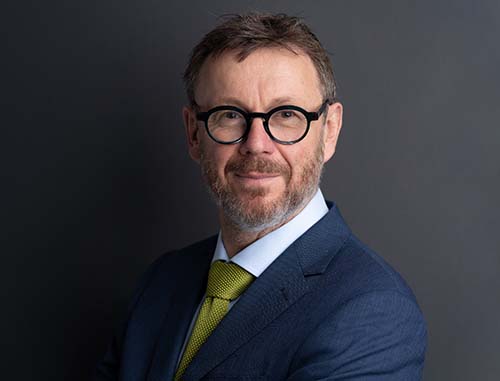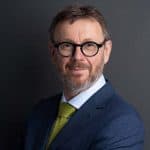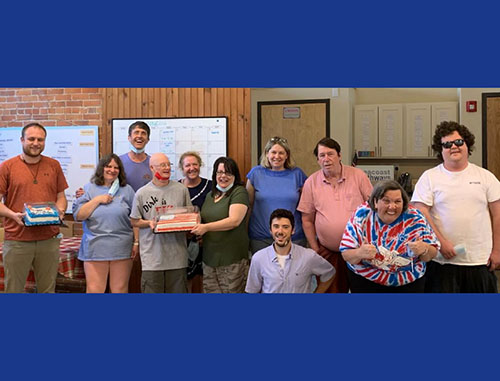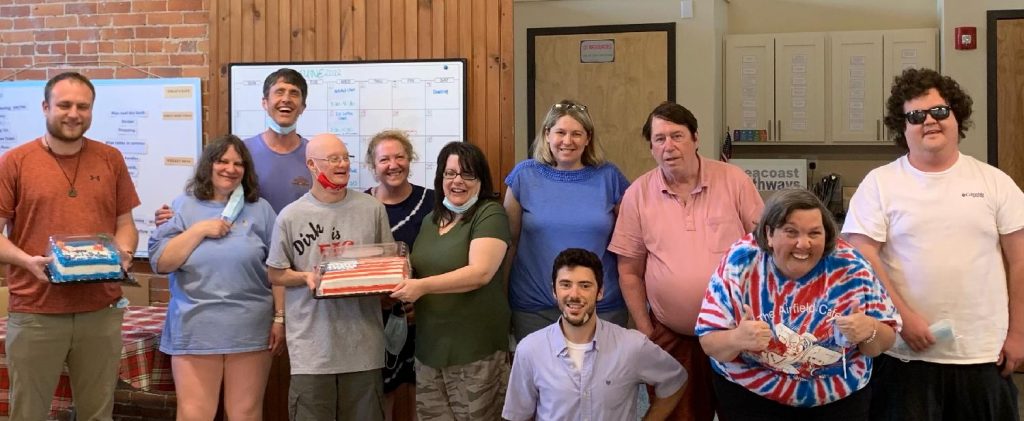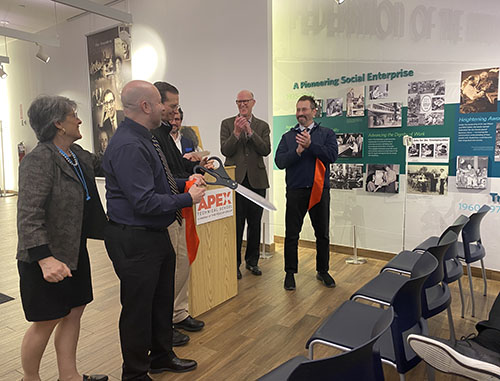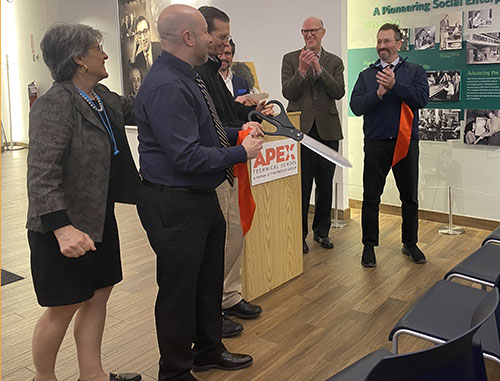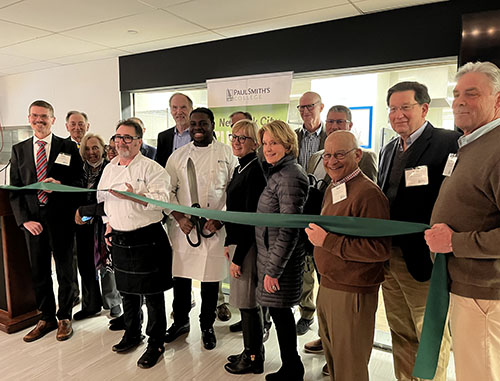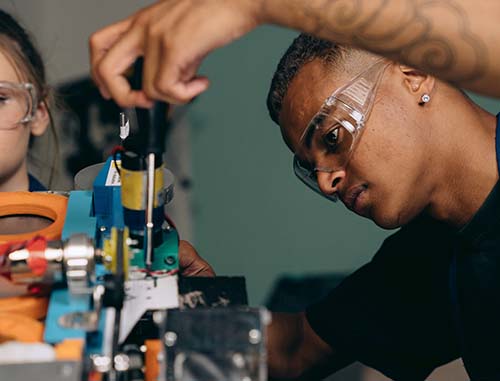Here Comes the Sun
How The Fedcap Group is Breaking Down Barriers to the Clean Energy Workforce
With Our Solar Technician Program
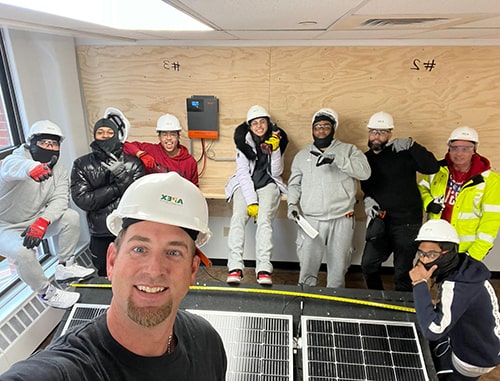
April 3, 2023
This past fall, The Fedcap Group launched the Apex Clean Energy Institute—a transformative new program to train and connect individuals to high-demand, well-paying jobs in the growing green energy sector. The first location was at one of our affiliates, Community Work Services, in Boston. The Clean Energy Institute’s first class was a pilot consisting of 15 returning citizens—i.e., formerly incarcerated individuals.
At The Fedcap Group we’re focused on breaking down barriers to economic well-being and a way to meet our mission is to focus on high-growth, high demand workforce sectors. That’s why we launched a 450-hour solar technician program—a program spearheaded by our head of clean energy, Robert Wallace—as the first training at the Apex Clean Energy Institute. “Employment of solar photovoltaic installers is projected to grow 27 percent from 2021 to 2031, much faster than the average for all occupations,” according to a recent federal Bureau of Labor Statistics report.
At the Apex Clean Energy Institute’s December kickoff, there were high-hopes and great enthusiasm for the program to give second chances in profound and meaningful ways. One incoming student said, “That was one of the things that appealed to me about clean energy. The first thing was gainful, sustainable employment—a paycheck … The second thing was I committed some harms—a lot of harm when I was younger … now it is my mission to repair some of those harms. So, reparation in action is important for me.”
We’re creating that positive track record. Not only does our new solar technician program provide essential skills development in the clean energy sector, it also requires other fundamentals such as financial literacy and successfully finding and interviewing for a job—so graduates are fully prepared to be successful in their careers. In addition, part of The Fedcap Group’s work is to create pathways to constant upskilling opportunities and life-long learning. Working with our partners at Paul Smith’s College—a national leader on sustainability, green energy, and climate change—graduates of our 450-hour solar technician program will receive six college credits to help with future certifications and degrees for further career advancement.
The first cohort has recently finished and the preliminary results are promising. Of the 15 students who entered our inaugural program, 12 (or 80%) have completed the program. And for the three individuals who have yet to complete the program, our team is working with them to finish in the next incoming class.
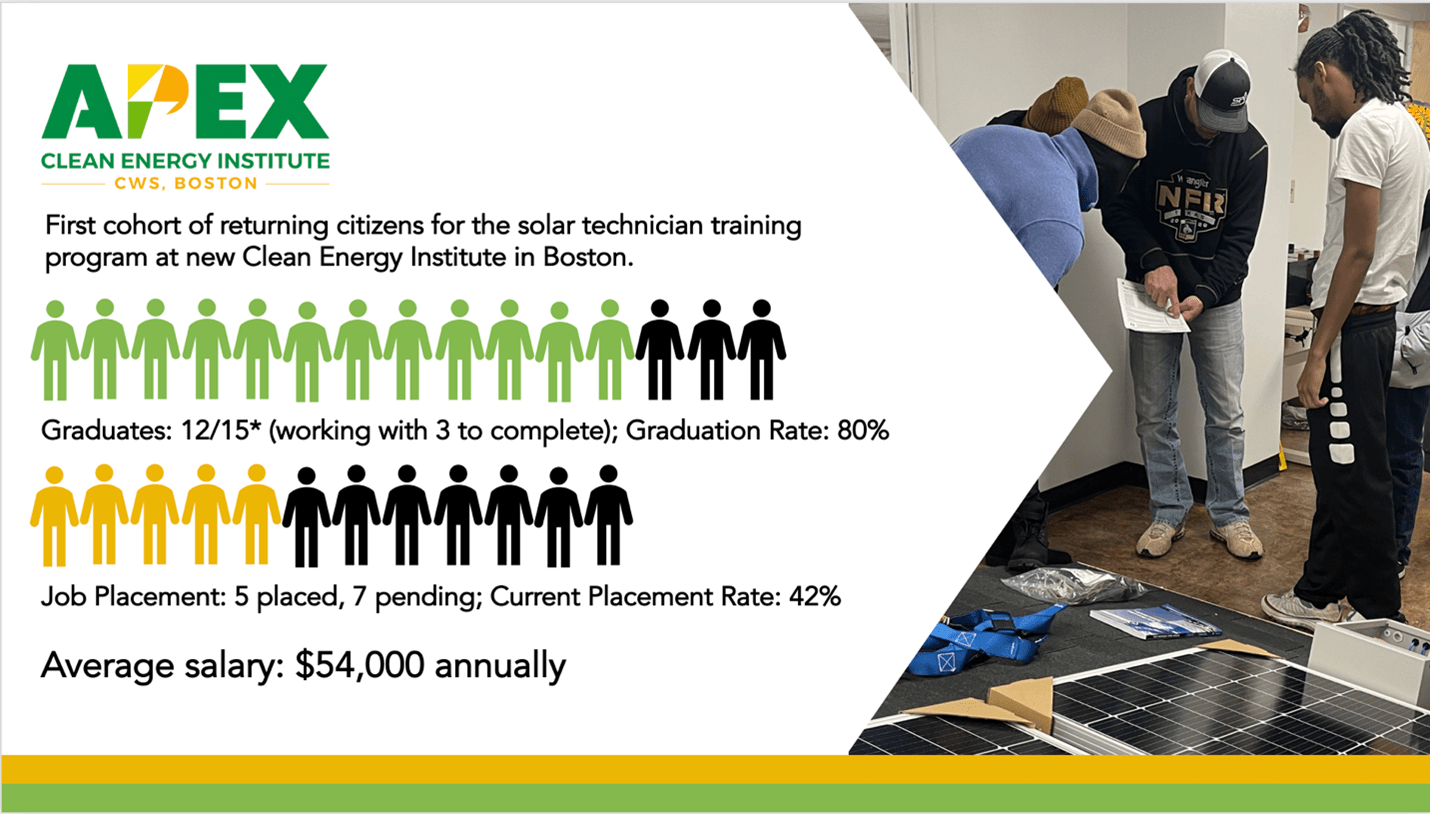
Of the 12 who completed the program, four have already been offered well-paying, sustainable jobs—with an average salary of $54,000 annually. To put that in perspective, that’s more than 70% higher than the annual minimum wage salary in Boston! The remaining 7 students are currently in the process of obtaining jobs in the solar energy field and on their way to gainful employment in a high-demand field.
Whether it’s getting that first real opportunity or receiving a second chance (like our first cohort of the Apex Clean Energy Institute in Boston did), The Fedcap Group will continue its tireless work to give every individual a shot at economic well-being. The program is off to an encouraging start and we’re planning additional sites so others, like our first class in Boston, may also have a brighter future.
Ahí Viene el Sol
Cómo The Fedcap Group está Derribando Barreras de la Fuerza Laboral de Energía Limpia con Nuestro Programa de Técnicos Solares
3 abril 2023
El otoño pasado, The Fedcap Group lanzó el “Apex Clean Energy Institute”, un nuevo programa transformador para capacitar y conectar a las personas con empleos de alta demanda y bien remunerados en el creciente sector de la energía verde. El primer lugar fue en uno de nuestros afiliados, “Community Work Services”, en Boston. La primera clase piloto del “Clean Energy Institute” fue compuesta por 15 estudiantes que regresaban, es decir, personas anteriormente encarceladas.
En The Fedcap Group estamos enfocados en derribar barreras para el bienestar económico y una forma de cumplir con nuestra misión es enfocarnos en sectores de personal tanto de alto crecimiento como de alta demanda. Es por eso que lanzamos un programa de técnicos solares de 450 horas, un programa dirigido por nuestro jefe de energía limpia, Robert Wallace, como la primera capacitación en el “Apex Clean Energy Institute”. “Se proyecta que el empleo de instaladores solares fotovoltaicos aumentará un 27 por ciento de 2021 a 2031, mucho más rápido que el promedio de todas las otras profesiones”, según un reciente informe del “Federal Bureau of Labor Statistics”.
En el comienzo de diciembre del “Apex Clean Energy Institute”, había tanto grandes esperanzas como un gran entusiasmo por el programa para darles segundas oportunidades de manera profunda y significativa. Un nuevo estudiante dijo: “Esa fue una de las cosas que me atrajo de la energía limpia. La primera cosa fue el empleo remunerado y sostenible, en otras palabras, un cheque de pago… La segunda fue que cometí algunos daños, mucho perjuicio cuando era más joven … Ahora es mi misión reparar algunos de esos daños. Por lo tanto, la reparación en acción es importante para mí”.
Como dijo William N. Brownsberger el presidente Interino del Senado de Massachusetts en el evento de lanzamiento; programas como nuestro nuevo programa de capacitación de técnicos solares es clave para ayudar a los ciudadanos que regresan porque, “Para la mayoría de las personas que salen de prisión no es tanto que tengan un historial; sino es que no tienen uno” o así como no tienen un currículum con capacitación laboral o, un historial de empleo.
Estamos creando estos antecedentes positivos. Nuestro nuevo programa de técnicos solares no solo proporciona el desarrollo de habilidades esenciales en el sector de la energía limpia, sino que también requiere otros principios básicos; como la educación financiera y la búsqueda así como entrevistas exitosas para un trabajo, es por eso que los graduados están completamente preparados para tener éxito en sus carreras. Además, parte del trabajo del Fedcap Group es crear caminos hacia oportunidades constantes tanto de mejora de habilidades como de aprendizaje permanente. Trabajando con nuestros socios de “Paul Smith’s College”, que es un líder nacional en sostenibilidad, energía verde y cambio climático; los graduados de nuestro programa de 450 horas de técnicos solares recibirán seis créditos universitarios para ayudar con futuras acreditaciones y títulos para un mayor avance profesional.
El primer grupo lo ha terminado recientemente y los resultados preliminares son prometedores. De los 15 estudiantes que ingresaron a nuestro programa inaugural, 12 (o el 80%) han completado el programa. Y para los tres estudiantes que aún no han completado el programa, nuestro equipo está trabajando con ellos para terminar en la próxima clase entrante.

De los 12 que completaron el programa, a cuatro ya se les han ofrecido empleos bien remunerados y sostenibles, con un salario promedio de $ 54,000 anuales. Para poner eso en perspectiva, ¡eso es más del 70% superior al salario mínimo anual en Boston! Los 7 estudiantes restantes están actualmente en el proceso de obtener empleos en el ámbito de la energía solar y en camino a un empleo remunerado en un campo de alta demanda.
Ya sea que estés obteniendo esa verdadera primera oportunidad o recibiendo una segunda (como lo hizo nuestro primer grupo del “Apex Clean Energy Institute” en Boston), The Fedcap Group continuará su incansable trabajo para dar a cada individuo una oportunidad de bienestar económico. El programa ha tenido un comienzo alentador y estamos planeando sitiosadicionales para que otros, como nuestra primera clase en Boston, también puedan tener un futuro más brillante.



